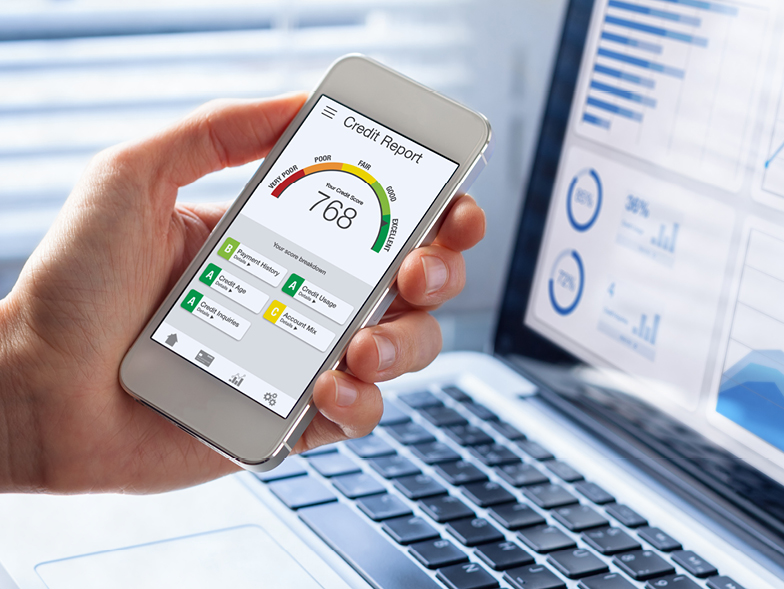How to Get a Home Loan When Self-Employed
Purchasing a home when self-employed may not be as difficult as you think. Mortgage lenders still require much of the same information for corporate employees as they do for self-employed individuals. However, as a self-employed person, it’s essential to understand mortgage guidelines and requirements for obtaining a home loan. Consider the following when applying for a self-employed home loan.

Self-employment status
By mortgage lending standards, you are considered self-employed if you own 25 percent or more of a business; at least 25 percent of your income comes from your self-employed work; you do not receive a W-2 but rather a 1099 tax form; you are a contractor, freelancer; or a seasonal or gig worker. Any or all of these can be considered on their own merit or even as additional income. The lender must also see that this income is expected to be ongoing.
Employment verification
A lender will need to verify your role as a self-employed individual and will likely ask for several items, such as confirmation of your business insurance and business license, a letter from a certified public accountant (CPA)verifying the existence of your business, proof of membership in a professional organization, and emails or letters from existing clients. Some lenders will approve your loan with just one year of self-employment as long as you’re able to show that you’ve had two years of employment in the same or similar field of work. You will also need documentation stating that your current income is equal to or greater than what’s reflected on your W-2 from your previous position.
Note: If you’ve been self-employed for less than one year, the chances of obtaining a loan are less likely. Be sure to discuss with your lender how to build a financial portfolio to obtain loan approval.

Income verification
When applying for a mortgage, you’ll need to prove that you’ve had a steady income for at least two years before applying for the loan. Also, lenders will only count your taxable income when calculating your debt-to-income ratio. They will require you to supply your tax returns as it relates to you as a business owner or a sole proprietor such as Schedule C. Also, try to avoid any income inconsistencies which could affect your ability to obtain loan approval. Keep separate accounts for your down payment and estimated quarterly taxes. Do not comingle business finances with your personal funds as it can increase your debt-to-income ratio, making it more difficult to get loan approval.
Business stability
Lenders want to know that your business is financially secure and that your income will be stable. For these reasons, they may choose to conduct an in-depth review of your business to determine its stability. Upon analysis, if they believe your business is in a declining industry, it could show up as a negative mark on your loan application.
Mortgage options
Self-employed individuals can qualify for a loan just like any other homebuyer. However, if you’re seeking a conventional loan (not backed by the government), it just may take a little more patience and tenacity. Federally-backed government loans like Fannie Mae, Federal Housing Authority (FHA) loan, and the US Department of Veteran Affairs (VA) loan can be a great option if you do not show enough income, have a lower credit score, or need to make a lower down payment than needed for a conventional mortgage. You can also apply for a bank statement loan which allows you to qualify for a loan based on the total funds coming into your bank rather than your income tax returns.

Credit history
You can increase the likelihood of obtaining a loan by improving your credit score if possible. This includes paying your revolving accounts on time, paying down current debt, and avoiding opening new credit cards or closing old ones. Also, decrease your debt-to-income ratio by cutting out all unnecessary expenses, which can also help to increase your credit score.
Joint loans
If you are jointly purchasing a home with your spouse or co-borrower who is a W-2 employee, as long as the financial guidelines of the loan are satisfied, there is a high likelihood of you securing a loan. You can also choose to exclude them if you feel it will negatively impact your application.
Cosigned loans
If you are unable to secure a loan individually due to your self-employment status, you may consider asking someone to be a cosigner on your loan. The lender will assess their income, assets, employment history, and credit score. Because the cosigner will also be financially responsible for the loan, be sure to talk to your mortgage lender to fully understand the pros and cons of this arrangement.
Separate banking
When applying for a home loan as a self-employed individual, check with your mortgage lender to be sure you understand the guidelines and requirements for securing a loan. Consider creating a checklist of all the information the lender requires, such as your tax returns, employment and income verification, and proof of your self-employment status. As long as you plan ahead, shop around for the best programs and interest rates, and meet the guidelines set forth by the lender, you should be able to purchase a new home.


















